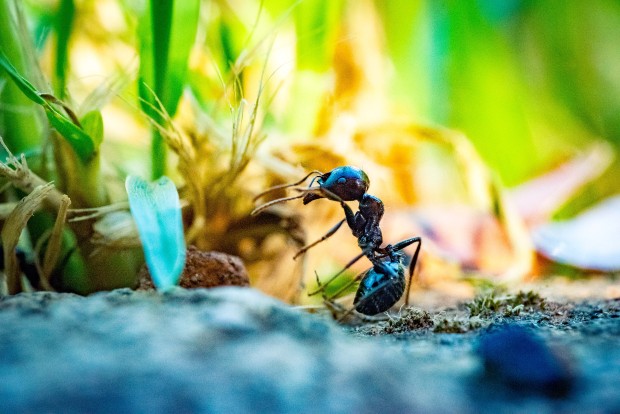
At the heart of every ant colony lies the most important member: the ant queen. She’s not just any ordinary ant. The role of a queen ant is vital to the survival and success of the colony.
In many ant species, the queen is the sole reproducer. Without her, the colony could no longer produce new workers, soldiers, or reproductive ants. In this post, we talk about queen ants, how does an ant becomes a queen, their role in the colony and more.
Table of Contents
What Is an Ant Queen?
The ant queen is the reproductive leader of an ant colony. Unlike worker ants, her primary function is to lay eggs and ensure the continuation of the colony’s lineage.
Without her, a colony would eventually die out as no new ants would be born to replace the old ones. But there’s more to her than just egg-laying. The ant queen holds a central role in the structure, growth, and long-term survival of the colony.
Do All Ants Have a Queen?
Yes. No matter the ant species, all colonies have a queen. Some, usually larger ones, may even have more than one.
Does the Queen Control the Colony?
No, the royalty in an ant nest doesn’t give out orders. Its main role is to reproduce, so there are enough workers to support and contribute to the colony. In fact, the workers decide which tasks to do by themselves. Whatever they prefer, that’s what they do.
How Long Does a Queen Ant Live?
The ant royals can live for decades. Scientists have found out that queen ants can live up to ten or even fifteen years in favourable environments. In a laboratory, they can live up to 30 years. Unlike the queen, the males live just about a week. Female workers can reach about a year and then they die.
Check also: 21 Ant Species with Superpowers and What Bugs Come Out in Spring
Lifecycle of Queen Ants
Queen ants lay eggs that develop into larvae. The larvae are fed and nurtured by worker ants until they pupate and emerge as adult ants. The queen’s role is solely to lay eggs, while worker ants manage the rest of the colony, including tending to the larvae.
- Egg: The queen ant lays thousands of eggs during her life.
- Larvae: These hatch from eggs and require care and feeding.
- Pupae: After sufficient growth, larvae spin a cocoon and pupate.
- Adult Ant: Fully developed ants emerge from pupae.
How Are Queen Ants Born?
When the eggs hatch, three types of ants begin to mature – worker females, males, and the queen. These three types of ants’ life cycles go on to be a bit different. The metamorphosis of a queen ant can take from several weeks to several months to complete.
Depending on the species, the process of creating the queen varies. Since there are over 12 000 species, you can imagine how many different methods there are. For example, the harvester ants choose their queen while it is still an egg. Other species feed one of the larvae with more royal jelly than the rest, and that one grows up to be the queen of the colony.
What Does A Queen Ant Look Like
Queen ants are typically much larger than other ants, with a more robust thorax and larger abdomen, which holds their reproductive organs. They often have wings early in life, but after mating, these wings are shed as they are no longer needed. Their size and physical build allow them to focus on their primary task: reproduction.
Check also: Get Rid of Garden Pests & Horrifying Zombie Ants
Does The Queen Ant Ever Come Out?
You will rarely spot a queen ant outside of the nest because she spends most of her life laying eggs. If the queen is out of the nest, that means it is mating season, and she’s on the prowl for a mate.
What Happens to Ants When the Queen Dies
If a queen ant dies and there is no replacement, the workers may eventually abandon the colony, seeking out new colonies to join or simply dispersing.
Unfortunately for the ants’ colony, when the queen dies, the worker ants can only survive for a few months. The colony dies off rather quickly because the workers cannot reproduce. When there’s no queen to lay eggs, the workers die off, and there are no new ones hatched to replace them.
What Happens If A Queen Ant Bites You?
If a queen ant bites you, the bite itself is not significantly different from that of a worker ant. Most queen ants do not bite humans unless they feel threatened, and even then, their bite is usually not dangerous. The intensity of the bite depends on the species of the ant.
The queen ant bite may cause mild discomfort or a slight pinch, depending on the size and species of the queen ant. Some people may experience mild swelling or redness at the site of the bite.
How to Kill Queen Ants?
If you spot a colony of ants or an anthill in your yard, look for one specimen that is larger than the rest or has wings. That is usually the queen.
However, if you see the workers only, doing something drastic to the anthill can lead to the queen’s death is the best option to exterminate the colony. That being said, there’s no guarantee that you’ll manage to kill her because she may not be in the nest.
One thing you can do to destroy an anthill is to pour boiling water inside of it. That should destroy many workers and possibly the queen.
If you spot an ant that looks like it may be the queen, you can kill it easily.
Facts About Queen Ants
- Regardless of the species, the queen ant will do anything in her power to be the last one standing, in case the colony is threatened or attacked.
- Most ants you see anywhere are female workers.
- Despite the royal title, a queen ant isn’t the monarch of the colony. The only two services that the workers perform for her are to clean her and bring her food. She doesn’t give orders to the rest of the colony but is also doing everything for the common good.
- When ants leave their nests to mate and establish new colonies, a phenomenon called “nuptial flight” causes flying ants to appear suddenly
Professional Ant Pest Control
Worker ants are responsible for maintaining the colony by feeding larvae, gathering food, and protecting the nest. However, without a queen, the colony could not produce new workers or soldiers, leading to its eventual disintegration. Pest control strategies often aim to either eliminate the ant queen directly or disrupt her ability to reproduce.
Sometimes only some of the workers get inside your home to forage for food. That makes it harder to distinguish where they come from. If there’s an entire colony, you can easily follow it to see their entryway. If you cannot deal with an ants problem, you can seek professional ant extermination services.
The queen ant is the backbone of any ant colony. Their ability to lay thousands of eggs and control the colony’s growth makes them vital to its survival. Having an ant colony near your home can almost guarantee you they will come inside if they find a way in and a source of food. Ants can be a major annoyance because they can fit through virtually the slightest, almost invisible to you crack in the wall.
Are you dealing with a pest infestation?
You don't have to be alone in the battle against pests. Hire a professional pest expert!
Call us
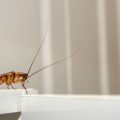


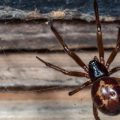
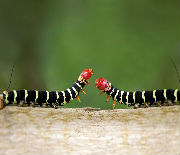
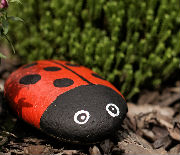
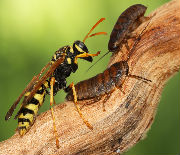
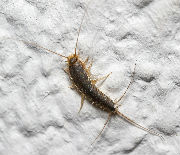
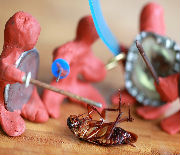
Leave a Reply